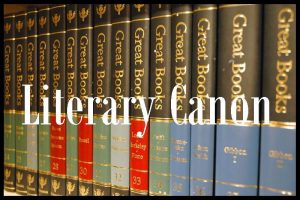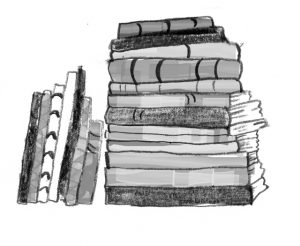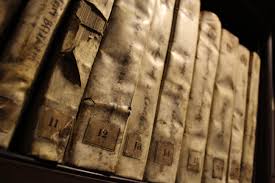Literary Canon: The most relevant definition of canon is “an authoritative list, as of the works of an author”. It is also described as “a basis for judgment; standard; criterion.” One of the definitions is, “the books of the Bible officially recognized by the Church,”

And the idea of literary canon also indicates similar meaning. Entering the canon is to gain specific privileges and more importantly needs status and accessibility to a reading public.
Definitions of Canon
Belonging to the canon discusses status, political, economic, social and aesthetic, none of which is inseparable from others. Secondly, belonging to the canon offers a guarantee of quality and this guarantee of high aesthetic quality acts as a promise, an assurance to the viewer.
It says that the literary piece that you are going to enjoy is an aesthetic object. Maybe it is complex and difficult, but privileged because it has been winnowed by some sensitive and some not so sensitive viewers and it will definitely repay your attention.

You will have pleasure going through it. Having announced in the above way, be it a poem, painting, building, sonata or dance when announced within a canon serves a powerful separating purpose.
It immediately gives the impression of being standing apart, better and meant to be valued, enjoyed and loved. These are the literary pieces which are read by neophyte students and expert teachers in universities in the western world.
Members of the Canon: Advantage
In fact, to read these books is also a sign of privilege. The works included in the canon are subject to constant change as well. So, perhaps there is no need to overemphasize the rigidity of the canon.
The canon possesses a small gallery of framed objects which are the members through narrowed and confined approach.

The members of the canon get an advantage of an escalation due to the splendor that is gained by existing in comparative isolation along with its segregation. They attain glory, though often based on false notions of distinctiveness.
Canon excludes many individual works while surveying courses in particular and so the remain often appear more original than it actually is.
When was the Literary Canon Created
Has other works been included in the list and then compared, results would have been definitely different from what we have today.
This is the reason why most think that on one hand the literary canon misleads us by promoting this kind of falsification and on the other hand it creates even more serious effects on the works which are left out of being included.

One of the greatest disadvantages of not being included in the literary canon is that the works do not communicate with each other. The specific work outside the canon gets forgotten and unnoticed.
What is Canonical Literature
Every discussion or connection that used to be made was because it was out of view or perception of the Europeans.

The reason behind all this was obviously political because just like the colonial powers – France, Germany or England, the canonical work acts as the center – the center of values, the center of the field where it can be interpreted, the center of interest and the center of a network of meaningful communications.
Feminist Responses to the Idea of a Literary Canon
The noncanonical works behave like colonies or countries which are unknown as well as out of sight and mind.
This is the reason why feminists have an objection regarding emission or excision of female works from the canon. The systematic non-inclusion of women’s works can be solved by
- Expanding the canon to include great women’s works which have been recently discovered
- Changing definitions and standards of the canon
- Creating an alternate tradition or canon
Feminist Questions about the Literary Canon
- Why the literary canon has only included male writers, specifically white, middle-class and upper-middle-class male writers?
- What are the standards on which the works of women, non-white men and economically subjugated have been arbitrated? How are they biased and in favor of men?
- Is there a possibility of adding women, minorities or working class writers to the canon? With the introduction of such writers, does the commencement of literary canon changes?
- What purpose does the existence of literary canon serve? Is there any benefit offered in the interests of women or other downgraded groups of people?
- What is the extent to which the idea of canon creates Degradedness?
- Can the literary canon not be avoided or is there an unacknowledged political purpose behind canonizing some writers and excluding others?
As efforts to address problems of the canon, four different approaches have been suggested and enacted by feminists.
- Add to the canon
- Create alternative readings
- Develop a counter-canon
- Evaluate the notion of the canon
Feminists are of the opinion that literature is an outstanding tool of education and students become better persons by reading great books. Any author becomes great because he has been able to present an authentic vision of life to his readers.

However, simply proclaiming the end of canon just to do away the bad effects is not a great idea. One of the greatest disadvantages of doing away with canon is that one would be left with hundreds of thousands of indiscriminate and unnoticed works,
Works we cannot see, notice or read. It is good to learn to live with them, benefit with them, appreciate them and remain suspicious of them as well.
More Info On- Literary Style of Charles Dickens